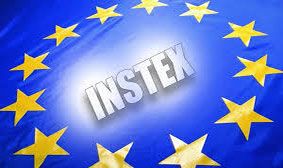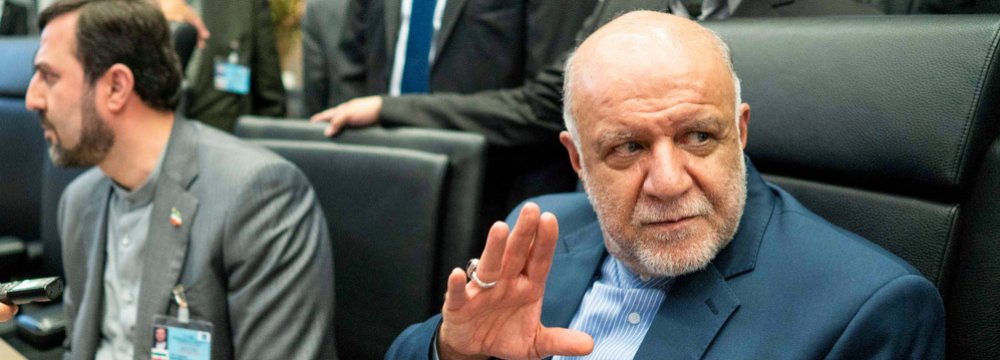
INSTEX Worthless Without Oil Import

“Without oil deal, it’s very clear, INSTEX will not work,” Bijan Namdar Zanganeh added in a Bloomberg Television interview in Vienna, Austria, on Tuesday.
As part of efforts to protect Iran’s economic interests as per the terms of the nuclear deal between Iran and the six world powers in 2015, France, Germany and the United Kingdom—the three European signatories to the deal—created INSTEX in February.
The initiative is seen as European Union measures to convince Iran to remain in the deal after US President Donald Trump unilaterally pulled out of the deal a year ago and reimposed harsh sanctions against major sectors of Iran’s economy.
Two months after the creation of INSTEX, Iran set up a corresponding financial mechanism in March. The Iranian reciprocal entity, known as the Special Trade and Finance Institute, was officially registered in April as a private company based in Tehran.
According to the news outlet, INSTEX is mainly intended at facilitating the trade of basic goods such as food and medical products, but not oil sales that are Iran’s lifeline and a main target of the sanctions.
Iran says it can’t be expected to abide by the accord while the US penalties rob it of the economic benefits it was promised in exchange for curbing its nuclear program.
In the absence of SWIFT, the main international paying system, INSTEX can provide a channel that enables overseas trade and transactions with Iran. Under mounting pressure from Washington, SWIFT decided to remove Iranian banks from its network last November.
The mechanism was in limbo for about five months before Europeans announced on Friday that INSTEX is finally operational.
Following the 12th meeting of the Joint Commission in Vienna, held regularly to ensure the protection of the nuclear deal, the remaining signatories to the deal announced in a statement that INSTEX is up and running and it is processing the first transactions.
The statement was hailed by Iranian authorities as a practical step taken by the EU to save the nuclear deal. However, they almost universally underscore the fact that the mechanism will not be effective, unless it allows oil imports from Iran.
In a similar vein, Central Bank of Iran’s Governor Abdolnasser Hemmati announced on Sunday that INSTEX needs to be financed by importing oil from Iran to ensure its sustainable operation.
Hemmati noted that if Europeans face obstacles to purchasing oil from Iran, they can open a long-term credit line for Iran to be later repaid through oil import.
INSTEX will be based in Paris and managed by German banking expert, Per Fischer, who is a former Commerzbank manager. The UK will head the supervisory board.



Trump weighs using $2 billion in CHIPS Act funding for critical minerals

Codelco cuts 2025 copper forecast after El Teniente mine collapse

Electra converts debt, launches $30M raise to jumpstart stalled cobalt refinery

Abcourt readies Sleeping Giant mill to pour first gold since 2014

Barrick’s Reko Diq in line for $410M ADB backing

Nevada army depot to serve as base for first US strategic minerals stockpile

Tailings could meet much of US critical mineral demand – study

Viridis unveils 200Mt initial reserve for Brazil rare earth project

SQM boosts lithium supply plans as prices flick higher

Energy Fuels soars on Vulcan Elements partnership

Northern Dynasty sticks to proposal in battle to lift Pebble mine veto

Giustra-backed mining firm teams up with informal miners in Colombia

Critical Metals signs agreement to supply rare earth to US government-funded facility

China extends rare earth controls to imported material

Galan Lithium proceeds with $13M financing for Argentina project

Silver price touches $39 as market weighs rate cut outlook

First Quantum drops plan to sell stakes in Zambia copper mines

Ivanhoe advances Kamoa dewatering plan, plans forecasts

Texas factory gives Chinese copper firm an edge in tariff war

Energy Fuels soars on Vulcan Elements partnership

Northern Dynasty sticks to proposal in battle to lift Pebble mine veto

Giustra-backed mining firm teams up with informal miners in Colombia

Critical Metals signs agreement to supply rare earth to US government-funded facility

China extends rare earth controls to imported material

Galan Lithium proceeds with $13M financing for Argentina project

Silver price touches $39 as market weighs rate cut outlook

First Quantum drops plan to sell stakes in Zambia copper mines

Ivanhoe advances Kamoa dewatering plan, plans forecasts

















